 | “When things change inside you, things change around you”
– Unknown Dear Friends, Partners, and Allies, In the midst of unprecedented events affecting our world, our nation, and our state, the word “change” lives at its core. In order to remain impactful, relevant, and effective, Housing California continually strives to engage, adapt, and evolve. These changes may start internally and in time manifest externally in our effort to meet this moment. Changes can start out small like altering a logo, or adding a tagline, and may also be more bold like taking concrete steps to advance racial justice as addressed in our formal statement around systemic racism. So it is at this time that we have decided to update our logo and our color palette which reflects a revitalized vision embracing change, promoting inclusion, and conveying our aspirations. We see ourselves entering a new era of consciousness in our culture and our sector. Opportunities exist now that are actually within reach or more reachable than in the past. Housing California is at the center of many of these conversations leading the way with esteemed and brilliant partners. Together, we strive to be a guiding light with numerous points that represent the varying opinions and agendas of coalition members while still centering around the concept of home. |
| 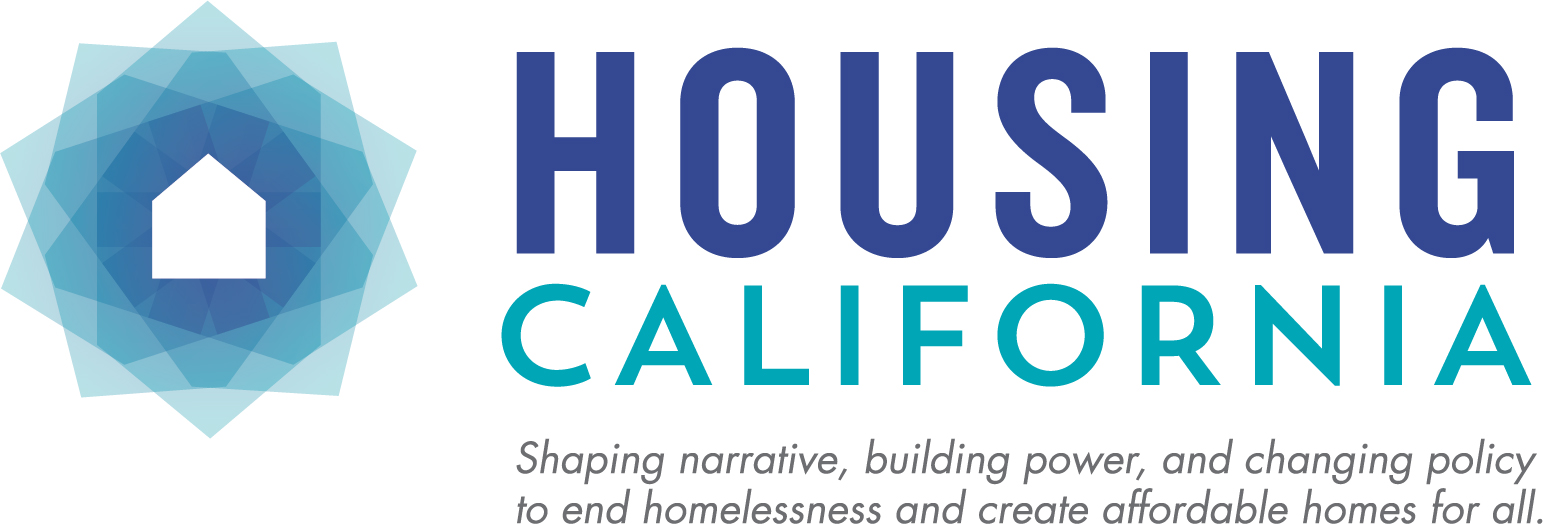 | An essential part of this vision includes our ambitious initiative, California’s Roadmap HOME 2030, a statewide effort to collaboratively develop and advance a comprehensive framework of actionable and evidence-based housing and homelessness solutions. This framework intentionally integrates racial equity and guides our efforts as we work with Governor Newsom’s administration, legislators and a multitude of other partners and supporters to realize housing justice for all. In addition, we are leaning into change by launching an innovative, digital-focused “unconference” where we bring together brilliant minds and share proven strategies designed for participants to cultivate new skills, connect with colleagues and gain the insight needed to advance their missions. |
| 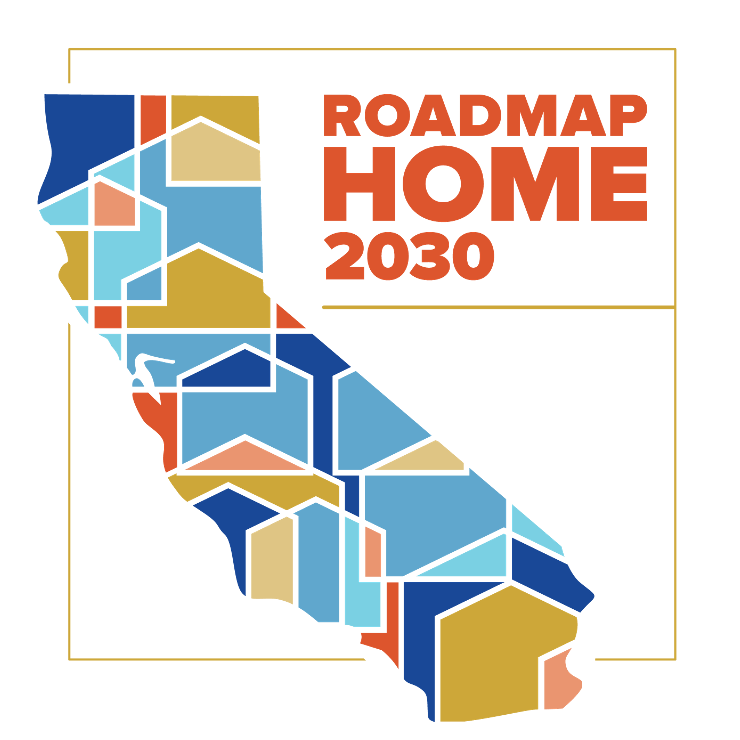 | At our core, we remain devoted to ending homelessness and housing insecurity amid massive upheaval. Yes, it’s a different world and we are forever changed. These external events signal a new normal and both our small steps and big strides signal that Housing California is prepared to meet this moment head on and sustain impact for the long game. In solidarity, strength, and gratitude,
Lisa Hershey
Executive Director |
|  | | | |
|
| | Register today for Housing California’s first-ever virtual “un-conference” |
|  | Join us at Housing California’s Virtual Un-Conference from August 31-September 4, 2020 as we meet some of the bright minds, champions, and visionaries leading the conversations around housing and homelessness in Congress, at the State Capitol, and amongst our housing and equity partners. Our keynote speakers include Anat Shenker-Osorio of ASO Communications and Glenn Harris of Race Forward. During two separate sessions, they will provide their perspectives on developing a race-class narrative and promoting racial justice in our work. We will also hear from state legislative leaders Senator Scott Wiener and Assemblymember David Chiu, chairmen of the Senate and Assembly Housing Committees, respectively. They will provide insight into the way the legislature is responding to current challenges and offer perspectives on a path towards creating affordable homes for all Californians. Key speakers include: - john a. powell of U.C. Berkeley’s Othering & Belonging Institute
- Diane Yentel of National Low Income Housing Coalition
- Nan Roman of National Alliance to End Homelessness
- Dr. Tiffany Manuel of TheCaseMade
- Thomas Allen Harris of Family Pictures USA
- Elizabeth Elliott of the Northern Circle Indian Housing Authority
- Amanda Andere of Funders Together to End Homelessness
Attendees will participate in deep-dive discussions and learning labs designed to make you think, act, and work differently to create change in the movement for housing justice. You can register and find more information about the Housing California Virtual “Un-Conference” by visiting conference.housingca.org. |
|
|
| | Gutting the Affirmatively Furthering Fair Housing Rule We join our national partner, National Low Income Housing Coalition (NLIHC), in condemning the move by the Trump administration to meaningfully undermine the Fair Housing Act of 1968 by adopting a new Affirmatively Furthering Fair Housing (AFFH) rule. This new rule suspends the original AFFH regulations and dilutes the preexisting guidance informing states and local government on how they should actively address discriminatory housing practices and dismantle policies perpetuating racial segregation, housing discrimination, and disinvestment. Furthermore, we are deeply grateful to Western Center on Poverty and Law, Public Advocates and Asm. Santiago for integrating fair housing into California law with AB 686, a bill we whole-heartedly supported. We are equally distressed by HUD’s new guideline identifying and excluding transgender people from utilzing local homeless shelters. The move lacks compassion and support for those at a moment of greatest need. |
| |
|
| The NLIHC Out of Reach Report is Released Check out the recently released NLIHC Out of Reach 2020 report which provides critical data and information highlighting the extent to which low-income households must struggle to secure housing in their states. The Housing Wage provides an estimate of the hourly wage a full-time worker must earn to afford a modest rental home at HUD’s fair market rent without spending more than 30% of income on housing costs, the accepted standard of affordability. The comprehensive report includes a state by state breakdown plus lots of other eye-opening perspectives on the struggle to stay housed in the US. |
| 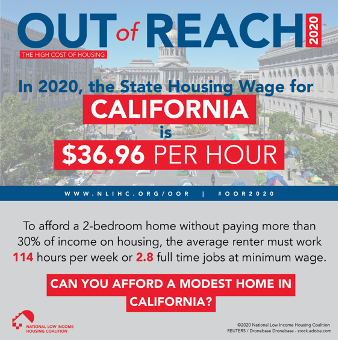 |
|
| | Other National News and Developments The HEROES Act was passed by the House but Senator Leader McConnel continues to ignore it. Senate Republicans have released their counterproposal, yet it does not go nearly far enough, and will leave millions of Californians at risk of eviction and homelessness due to the pandemic. The Senate proposal does not include a universal moratorium on evictions, or $100 billion for emergency rental assistance, as does the HEROES Act, and it provides only $3.3 billion to assist households living in public housing or receiving a HUD housing voucher or USDA rental assistance. We must continue advocating for the inclusion of these essential priorities in any legislative package that Congress creates.
Federal eviction moratoriums for HUD-funded properties have expired and renters across the country are at risk of losing their homes now. Take action and demand Congress expand and extend the eviction moratorium and provide rent relief now for struggling renters across the nation. |
|
|
|
|
| | Updates on Key Legislative Bills - AB 1845 (Rivas), which will create a Homelessness Office of the Governor, was passed by the Senate Human Services Committee. It will move to the Appropriations Committee. We must now relentlessly promote this bill to legislators, key influencers, and the public at large to draw attention and build support. Please help by tweeting your support. Below is a sample message.
|
| #AB1845 brings all homelessness programs currently operating in different agencies under the management of a single state office, enabling a coordinated effort to effectively tackle homelessness. #CALeg let’s make this happen. |
| - AB 1436 (Chiu), which would prohibit evictions for failure to pay rent during a state of emergency related to COVID-19 and 90 days thereafter, is still moving forward. It’s been gaining energy as millions of renters are on edge. Let’s keep this initiative visible by tweeting:
|
| We are asking @GavinNewsom and the #CALeg to pass #AB1436, which would enable CA renters at risk of eviction to remain in their homes. Let’s enable tenants to regain their financial footing so they can repay missed rents w/o hurting their credit. |
| - AB 3269 (Chiu), which aims to establish the Office of the Housing and Homelessness Inspector General that would monitor the reduction of homelessness, is making its way through the Senate. It passed through the Senate Committee on Housing on August 6. It will now move to the Senate Appropriations Committee.
|
| - AB 1703 (Bloom), which aimed to provide renters the first right of offer on their homes, was cut, along with other many bills from the Senate Judiciary hearing schedule. Yet, the coalition achieved some notable milestones by successfully initiating a tweet storm with a reach of approximately 150,000, spurring 280 conversations, and ultimately trending that day in California. Housing California conveys a deep and sincere thanks to all of our partners who participated in the tweet storm and helped to relentlessly raise this issue with legislators and the public. While we are disappointed with the result, we are encouraged by the acknowledgment both around the state and in the capitol that there is a real threat of speculation in the housing market on the recovery side of COVID-19. We look forward to addressing this issue with our coalition partners in the coming legislative season.
|
|
|
|
|
| | Help Promote the Census Ads promoting the Census are everywhere, from television to billboards to social media. Yet, some cities still struggle to get people to participate. The stakes are just too high not to take the survey.
All Californians can participate in the 2020 Census and make a difference today! There are three easy ways to fill out the form: - Online at my2020census.gov
- By phone at 844-330-2020 (a list of in-language options is available here)
- By mail if you received a paper form
|
| 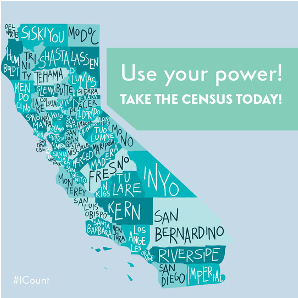 | | Schools and Communities First Get a New Name Schools and Communities First, now known as Proposition 15, will be on the November Ballot. Recently, the California Secretary of State posted the official description for the ballot measure, along with an analysis provided in the Title & Summary and Legislative Analyst’s Office (LAO) analysis. Prop. 15 will finally close tax loopholes which have allowed big corporations to avoid paying their fair share of market value property taxes. It is time to reinvest in our communities and our people, creating a brighter future for everyone. Prop. 15 analysis showed that only 10% of the biggest, most valuable commercial and industrial properties would generate 92% of the revenue.
Housing California has also been working closely with other steering committee members of the Yes on 15: Schools and Communities First campaign to develop an affordable housing policy brief for Prop. 15. This policy brief lays out how equitable reforms to our tax system will incentivize the development of more housing and provide local governments with the revenue necessary to invest in the development of housing affordable to low income people and in permanent housing with supportive services for people experiencing homelessness.
Read the Housing Policy Brief from Yes on 15 - Schools and Communities First to learn more about how Prop. 15 will impact affordable housing in your community.
Yes on 15 Housing Policy Brief |
|  | | Residents United Building its Network |
| 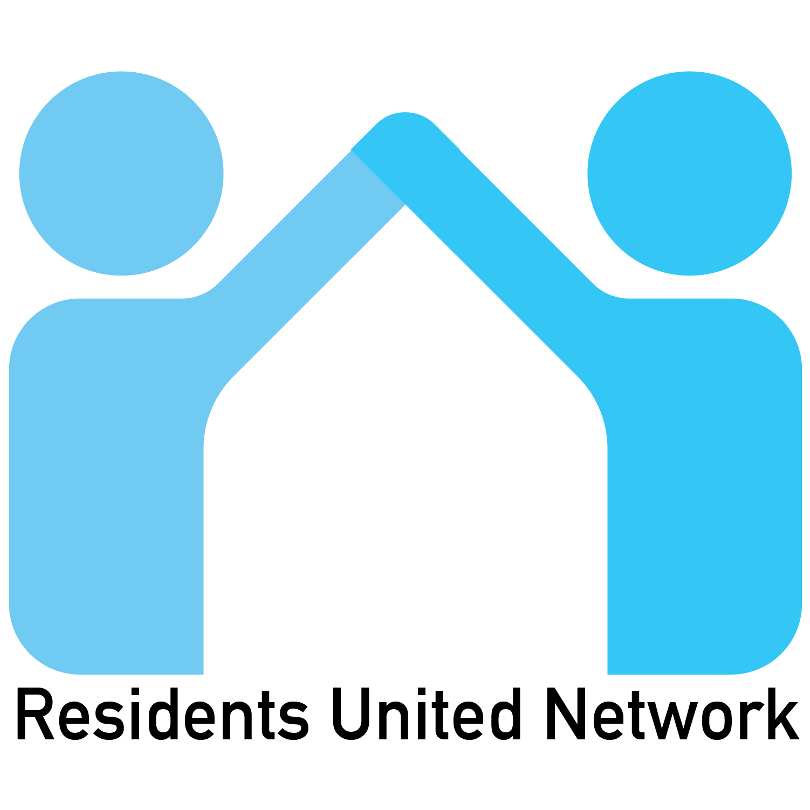 | Keeping the Dream Alive with Community Care We find inspiration in a multitude of places. This month we found it with Tourmaline, a Black trans filmmaker, who talked about using our imaginations to envision the big changes and the everyday changes we want in our lives. She wrote, “Freedom dreams are born when we face harsh conditions not with despair, but with the deep knowledge that these conditions will change— that a world filled with softness and beauty and care is not only possible, but inevitable.” If you ask yourself, “What will I do this week to get us closer to a California without homelessness?” and you need some inspiration, then join us on Wednesday for the Community Care call at 1pm. We welcome your freedom dreams. |
| Leaning into the Challenge Eviction is top of mind for millions of renters across the state and nation. In April, we created a space for RUN members to start talking about their fears and hopes around this tough subject. This month, the working group held a roundtable which discussed how affordable housing residents and affordable housing developers can work together to prevent pandemic evictions. RUN leaders and developers from Community Housing Works, Self Help Enterprises, and Mutual Housing had a productive conversation about what we need to make sure everyone who lives in affordable housing can stay there. More than 40 of us met up online to talk about evictions in affordable housing across California. RUN leaders and developers shared stories from the pandemic in a powerful hour of solidarity and commitment. Rickie Brown, a longtime RUN leader and property manager at City Heights CDC in San Diego, put it this way: “As a parent now, you have to think about, ‘Do I pay my rent, or do I feed my kids?’” We invite you to check out the recording which offers thoughtful contributions and hopes for a collaborative approach so we meet this moment together. |
| 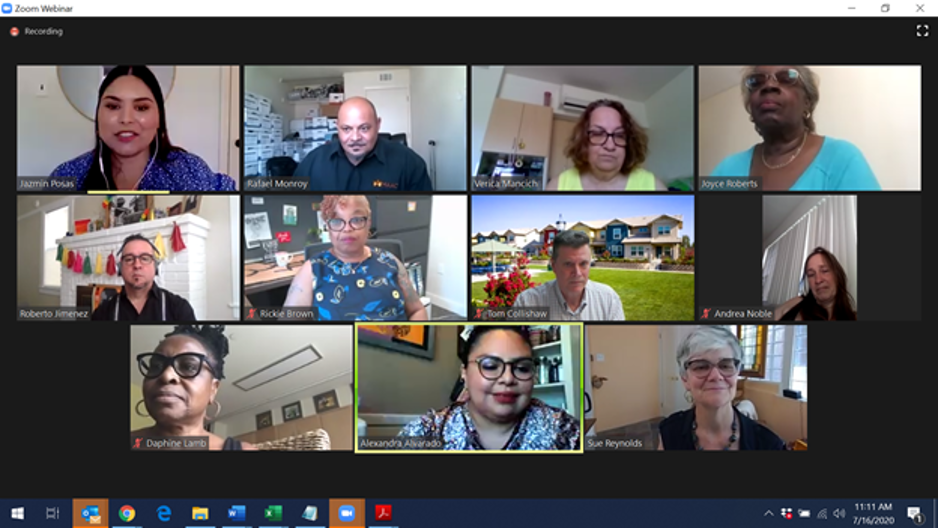 | Facing the Future Together RUN leaders met with staffers of four members of the Senate Judiciary Committee to push for AB 1703 in July. RUN members are especially concerned about corporate landlords buying up affordable housing and increasing rents, which is why AB 1703, which would have given tenants, community land trusts, and nonprofit developers the first right to purchase a building that goes on the market, resonated so deeply. It died along with about 60 other bills at the end of July, but RUN leaders look forward to picking it back up next year. What can we do to make sure Californians stay housed in the coming months? We can fight for statewide rent relief by supporting AB 1436, which prevents evictions due to unpaid rent from COVID-19. If you’re not already a member, consider joining RUN. For information and to join RUN, contact Tori Truscheit. |
| Bridging the Language Gap At RUN, we are always looking for ways to build and enhance our community. This month we added a new feature to our Community Care calls, enabling language interpretation during our meetings. Instead of separate meetings for monolingual Spanish speakers, which we’d implemented in April, technological improvements mean we can now include a Spanish-language interpreter in our Zoom calls. Each week, monolingual Spanish speakers can access a Spanish audio channel, ensuring that even more resident leaders can participate. |
| 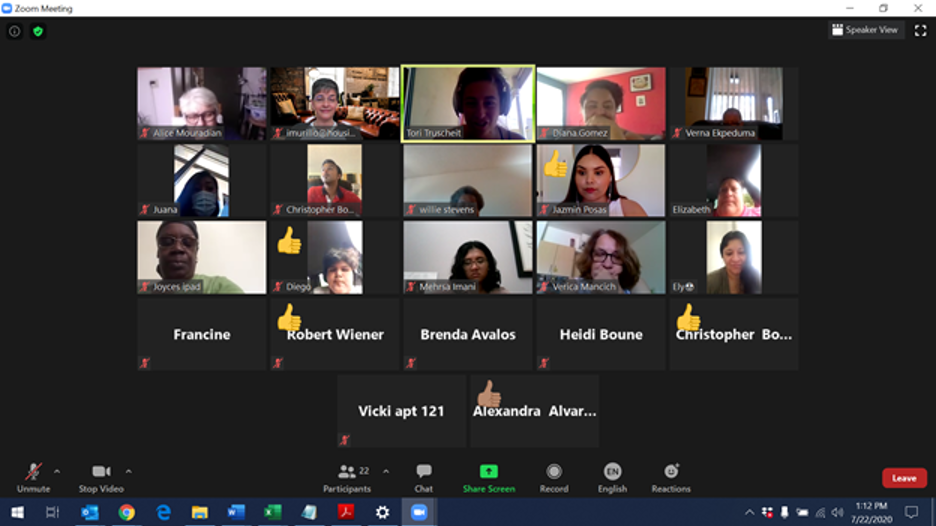 |
|
|
|
| | A look behind the spoken word We have two excellent resources on the power of narrative that we wanted to share with you. The first is a framing guide from Dr. Tiffany Manuel in conjunction with Enterprise Community Partners and FrameWorks Institute. Written in 2016, this publication titled, "Why Housing Messages Are Backfiring and 10 Things We Can Do About It", offers some valuable insights and research about messaging around affordable housing. Download the PDF here. We know that narratives, or compelling stories and strategies, are a powerful force which can be used for positive change. Today, we often see that they are used to elevate some voices while silencing others. We are sharing a great article that provides some insights on developing this narrative power from Oxfam and their collaborative partners around the world. Please check it out. |
|
|
| |
|
| | Housing California
1107 9th Street, Suite 560 | Sacramento, California 95814
916-447-0503 | staff@housingca.org |
| |
|
|
|
| |
|
|